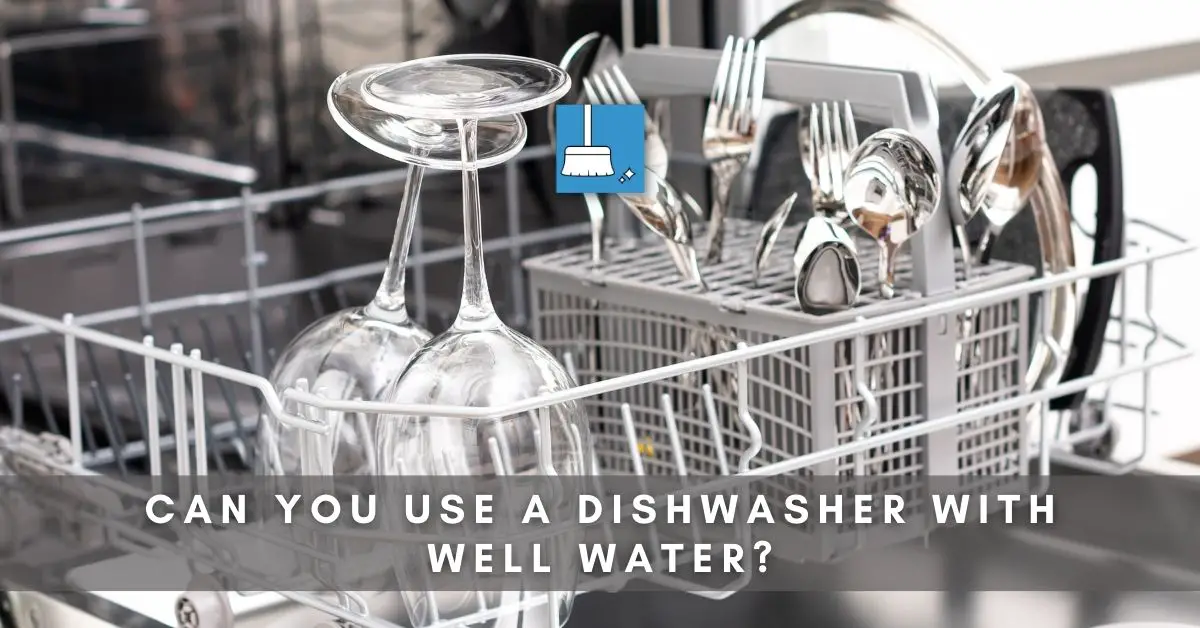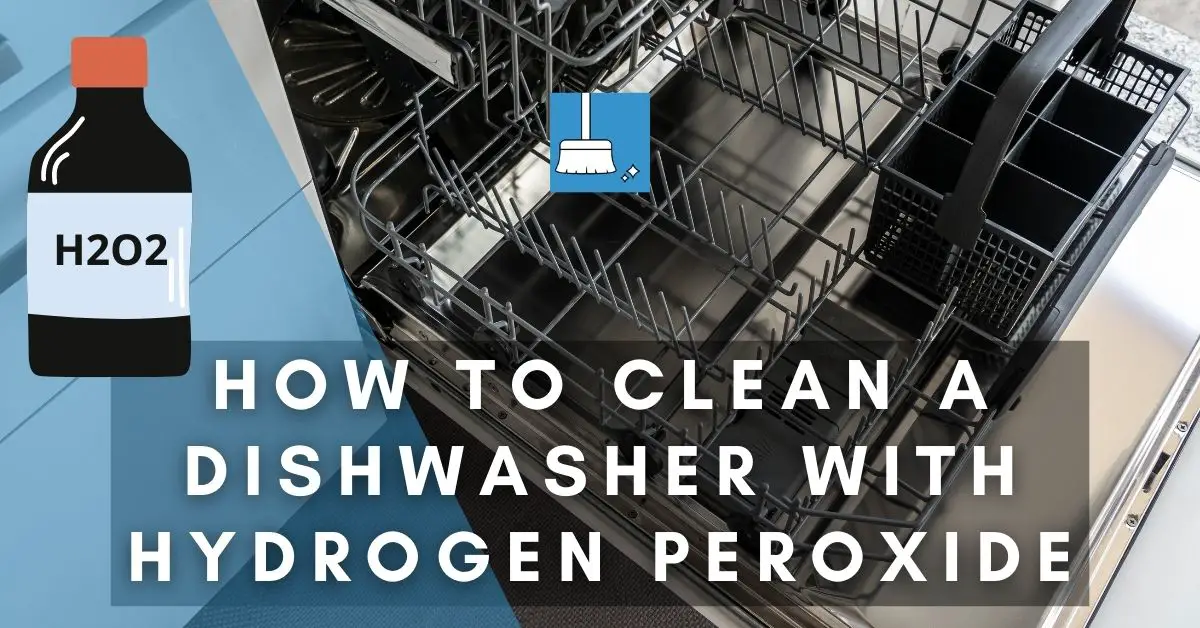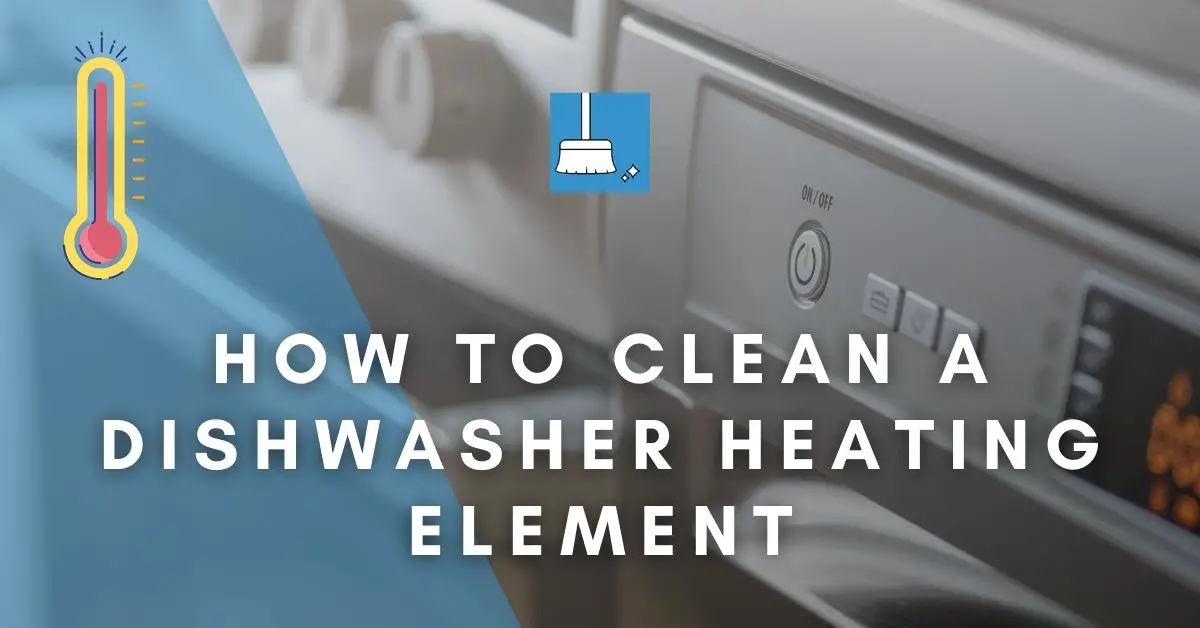When your only source of water is from the well, there is so much to consider as regards the continual usage of the water, the consequences that come with continued usage, or finding ways to mitigate the effects of the water type until a permanent solution is found.
In this article, we are explaining using a dishwasher when well water is the only source of water supply and the steps you can take to mitigate the effects it could have on your dishes and health, in general.
Can You Use a Dishwasher With Well Water?
Using well water for dishwashers is not advisable as it brings sand particles that filters can’t catch many times. Also, this water is hard and tends to leave films and stains on your dishes.
1- Well water is pumped out of the underground source, maybe a river, spring, lake, and sometimes an aquifer (naturally occurring underground stores of water that receives rainwater which seeps through the uses).
Because this water comes from the ground, the pumping action brings in a lot of particles such as sand which are of course very tiny that not all filters can catch.
It is therefore recommended to check well water regularly if you use it for drinking, cooking, washing cars and lawns, to mention but just a few.
This is why it is advisable to use Dishwasher filters. Not only do they solve the issues of filtering particles from well water, but some also have inhibitors to combat hard water and cloudy build-up in dishes.
2- Another reason Well water is not ideal for dishwashers is that well water is not often hot and this makes it difficult to dissolve detergent. If detergents are not well dissolved in water, they leave behind filming on dishes.
Effects of Using a Dishwasher with Well Water!
1- Utensils & Dishes get Cloudy
Hard water, which contains mineral salt such as magnesium and calcium appears as a reddish-brown stain on enameled surfaces.
Hard water well loaded with minerals such as calcium and magnesium also leaves a chalky residue on home appliances and other surfaces it touches, resulting in cloudy glasses.
Although, water hardness caused by calcium bicarbonate is considered temporary because heating the water detoxifies and converts bicarbonate into insoluble carbonate. Any other salt hardness is therefore regarded as permanent.
Note: Both tap and well water can be hard.
2- Hard Water Spots, discoloration & Rust
Hard Water also causes discoloration, rust, and stains on your appliances and dishes. Using well water or hard water leaves mineral deposits on your vessels.
These deposits can oxidize the surface leaving rust behind. The glassware is perpetually rendered faint and vague.
3- Reduced Efficiency of Dishwasher
To fight off the hard water effect, use a dishwasher detergent. These detergents are usually formulated with water softeners to help break down hard water. These are able to clear the dishes and utensils of any cloudiness, film, or other actions of hard water.
The Kind of Water That is Suitable for Dishwasher!
1- Soft warm water
Soft water is mainly used for getting good cleaning results. Use soft water and lime to prevent or solve the issue of spots and white limescale appearing on dishes after being washed.
2- Hot Water
Using hot water while washing dishes is very important because it helps kill germs. People like the aged and little children have more tendency to be affected by using contaminated water for day to day activities.
How Do I Know If I Have Hard Water?
1- Use Water Hardness Test Strip
Using a water hardness strip is the easiest method of checking water hardness.
To use, dip the water hardness test strip with the water to be tested, and after a while shake off the excess water. After 60 seconds, the test strip should show you if the water is hard or not.
2- Spottings
You’ll know you’re dealing with hard water when you see ‘water spots’ on literally everything in your house: from the dishes to the mugs, to the shower walls, and so on.
3- Rust and White Scale Build-up
Rusting is also how you can determine the kind of water you use. Rust stains on clothing, sinks, toilets, and other kitchen appliances result from the high mineral content present in the water.
Another sign of hard water is the excessive scale buildup on appliances and pipes, which often have a whitish scale and do not wash off easily.
4- Less lathering
When your soap and detergents do not lather well, it is an indication that you’re dealing with hard water because these tend to stick to the shower walls, dishes, clothes, hair, or even your skin.
To figure this out, pour the water you want to test into a bottle and add soap or detergent to it. After this is done, close the bottle and shake very well. If the water doesn’t lather as expected considering the amount of detergent added, then the water is hard water.
5- Metallic Smell
Usually, clean plates are supposed to have no odor however if dishes are washed with hard water, they tend to smell displeasingly metallic.
Combating Hardwater
1- You can use a filter that has scale inhibitors, convenient packaging, and all installation components to combat the action of hard water on dishes.
2- Dishwasher detergents such as Cascade Platinum are phosphate-free, and contain a lot of water softeners to fight and counteract any hard water issues in your water.
How Do I Keep My Dishwasher from Getting Hard Water?
If Your Dishwasher is connected to a hard water supply, there are several things you can do to prevent the water from getting to the machine in its form.
1- Try Another Water Source
One thing you can do to prevent your dishwasher from getting hard water is to change your water source.
Connect your dishwasher to a different water source, one that does not contain hard water. In this case, this could be borehole water that has been purified and softened with a water softener.
2- Hot Water Supply
Most Dishwashers have been designed to be able to turn cold water hot before use. This is an excellent way to stop hard water from getting into your dishwasher.
Once the water is heated up, the hard water would not only be spotless but would also reduce the chemicals that make it hard.
Should a Dishwasher Be Connected to a Water Softener?
To get the best result from your dishwasher, you should connect it to a water softener.
Water softener softens the water just as its name implies and makes the dishwasher perform its job effectively, not leaving any residue or chalky substance like hard water does.
A water softener will not only protect your dishwasher, but this decision could also save your washing machine, sprinklers, sink, fridge, and showers from a similar fate.
Final Thoughts!
Well water is not the best type for a dishwasher as it will leave mineral deposits on dishes as well as the machine itself, thereby reducing their life.
For efficient use of the machine, connect it to a hot water supplier and get a water softener to get the best result.
Also, follow the guidelines written in your owner’s manual to enjoy the best experience with your dishwasher.






Pingback: Can You Put Dish Soap In A Dishwasher? (How?) »
Pingback: Can A Dishwasher Cause Rust? (How To Avoid?) »